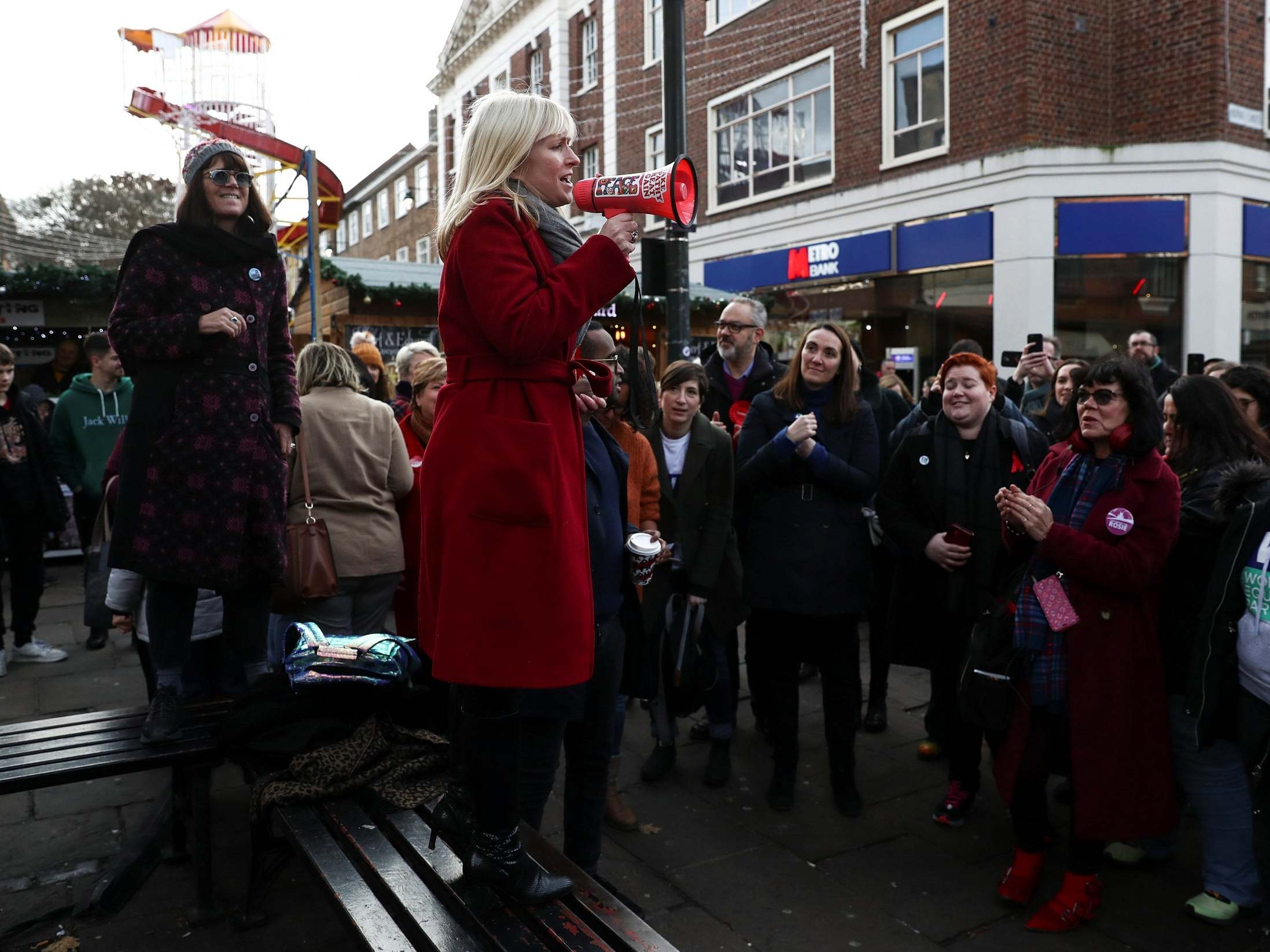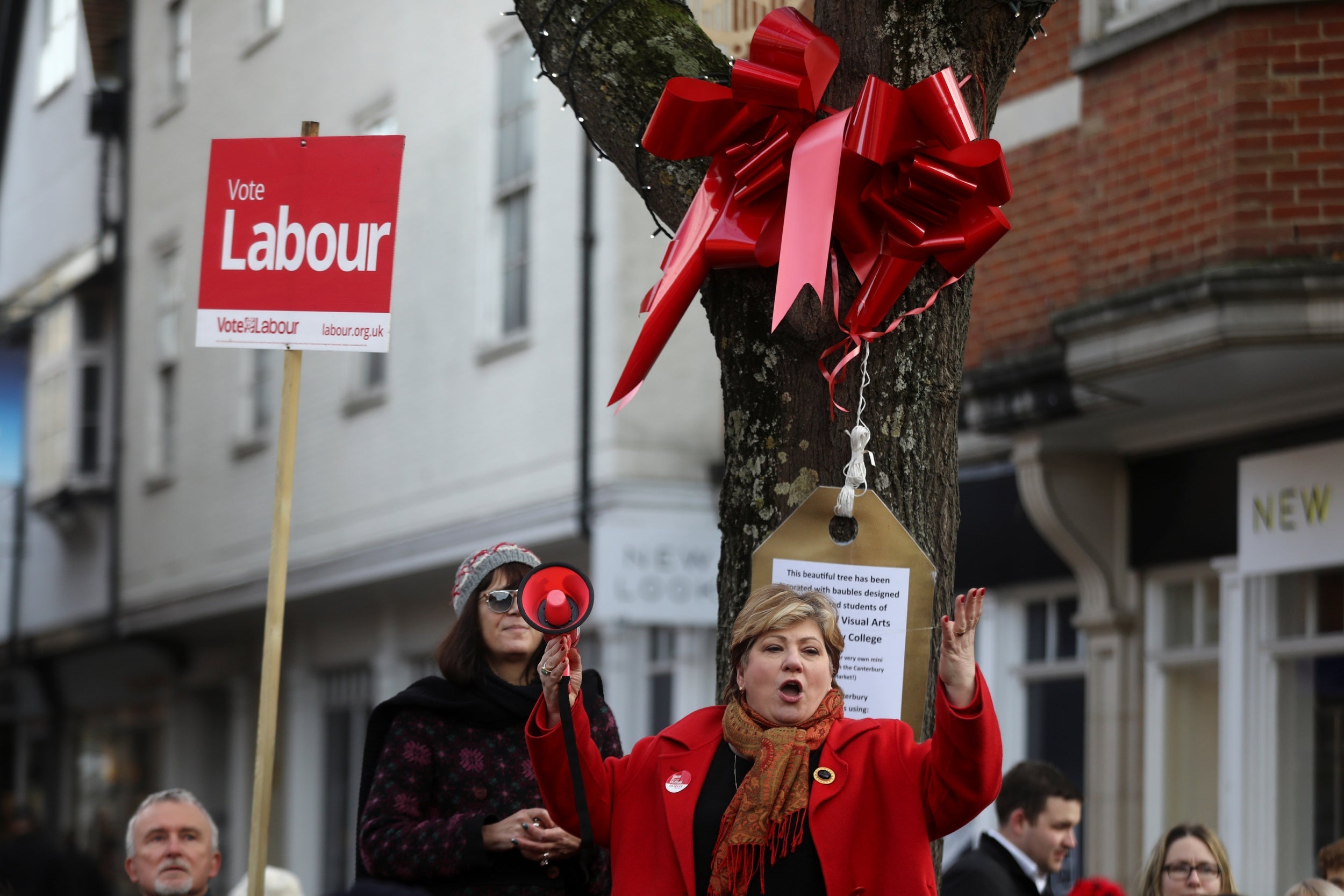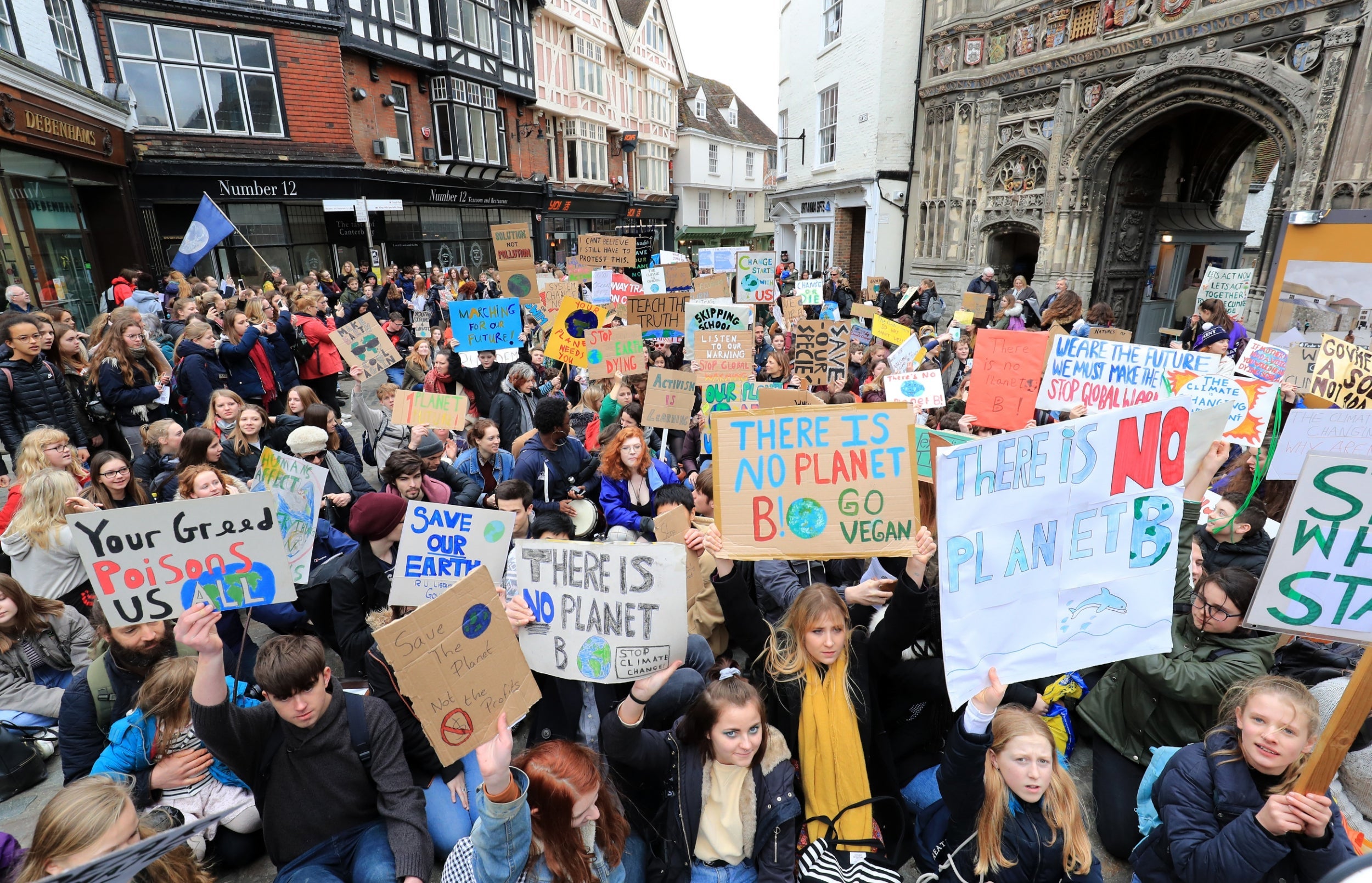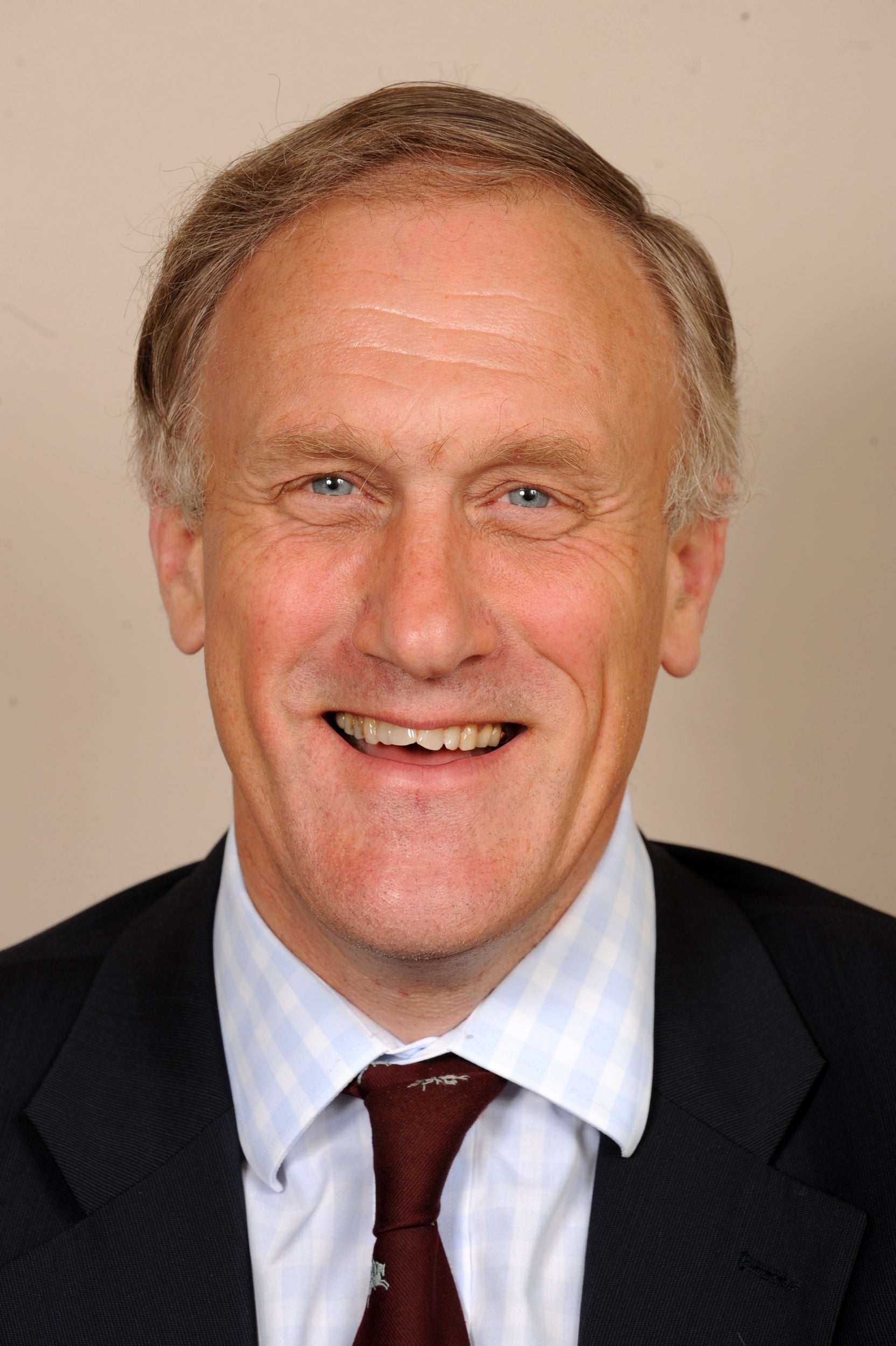Can Labour cling on to its most unlikely gain?
After 185 years as a Tory seat, Canterbury turned red in 2017. Patrick Cockburn finds out how Brexit has changed generations of political allegiance in this knife-edge seat


Rosie Duffield won Canterbury for Labour in 2017 by 187 votes, her unexpected victory ending an uninterrupted 185 years of Conservative governance. She did so by uniting the anti-Conservative vote and she must do so again tomorrow if she is to hold her seat.
“It is a dogfight,” says Paul Todd, a Labour organiser in south Canterbury, but he adds that on the doorstep he is finding that “Rosie is popular – everybody knows who she is”. Her personal popularity and reputation for political moderation may be decisive in persuading the large Lib Dem vote along with Greens, who are not standing, along with Conservative Remainers and independents, to turn out for her.
Last time round, Labour did not expect to top the poll. Duffield, 48, a former assistant teacher and single parent, recalled: “I was very, very surprised. I thought that we might reduce their majority, but not that we would win.” Another Labour activist says that just before the result was announced he was feeling that “we are up against 100 years of history”. The Conservative Party was confident that ingrained voting habits would prevail and even sent the sitting MP of 30 years, Sir Julian Brazier, to campaign in other constituencies they believed to be under threat, a miscalculation he remembers with some bitterness.
Two-and-a-half years later nobody is taking Canterbury for granted: nationally and locally both parties are deeply aware that the constituency is the most marginal in the southeast and the sixth tightest race in the country, according to a YouGov poll. Cabinet and shadow cabinet members like the health secretary Matt Hancock and the shadow foreign secretary Emily Thornberry have made visits and party activists are flooding in from outside the constituency. Anna Firth, the Conservative candidate, is on the right of the party, but is keen to emphasise a socially progressive agenda and distance herself from austerity measures hitting the poor and disabled.
Does for or against Brexit define the political terrain on which the election is being fought? Canterbury and Whitstable voted narrowly to stay in the EU and Duffield is a strong and vocal supporter of Remain. Firth constantly repeats Boris Johnson’s “Get Brexit Done” slogan, appealing both to Leavers and to those who simply want to put the whole imbroglio behind them.

Brexit may be the overwhelming issue, but it is not necessarily much talked about on the doorstep or even at hustings in Canterbury, probably because most voters are already set in their opinion about it. After speaking to Leavers in a working class district of Whitstable, one canvasser said: “It is as if supporting Brexit is part of their identity. They don’t want to discuss it.” Another political activist commented: “People just say they want to leave, but they won’t say why.”
I wanted no part in dividing the Remain vote, and, in the process, gift-wrapping this seat for another of Boris Johnson’s hardliners
This reticence does not mean that Brexit will not play a central role in deciding the outcome of the election – that is because of its effect on tactical voting. Political allegiances are more diverse in Canterbury than in the rest of true-blue Kent, where all the other 16 constituencies are Conservative, generally with rock-solid majorities. The Conservatives and Labour headquarters may have been shocked at the result in 2017, but it was always more predictable than was admitted at the time. Canterbury had long had an anti-Tory majority, but one that was fairly evenly split between Labour and Lib Dems. The switch of many of the latter to Duffield in 2017, reflecting a national trend, was probably the single most important factor in giving her a slim majority.
Much depends on whether or not this will happen again: many voters were viscerally opposed to Brazier’s reactionary views on everything from Brexit to abortion and fox hunting. Anna Firth does not provoke the same animosity, but that is partly because she comes from outside the constituency and is little known. Duffield, on the contrary, has had a high profile as an activist MP, is very visible in campaigning on local issues, and is much admired by many for courageously speaking out in parliament about her troubled relationship with an abusive partner.

Duffield’s chances of securing an overwhelming number of Lib Dem tactical voters increased markedly when Tim Walker, the Lib Dem candidate, stood down, explaining in a letter: “I wanted no part in dividing the Remain vote, and, in the process, gift-wrapping this seat for another of Boris Johnson’s hardliners.” His decision was denounced by an irritated Lib Dem leadership, who promptly appointed another candidate, but Labour is distributing widely a letter Walker wrote recommending a vote for Duffield.
Not everybody is happy about this effort to put in place an anti-Tory coalition. Joe Egerton, an independent pro-Remain Conservative, was manning a stall in central Canterbury last week, handing out blue, yellow and green badges with a motto saying alternatively “Conservatives [or Lib Dems or Greens] for Rosie”, when he felt somebody barge into him from behind. Turning around he was confronted by an angry man, who continued to be physically aggressive, while denouncing him for “selling stupid badges”. Clearly, the decorous tradition of political debate in Canterbury is beginning coming under strain.
Compared with the last election, there is a detectable escalation in anger at the present turmoil and fear for the future. This was visible at a recent crowded hustings in Westgate Hall in Canterbury where all three candidates expressed agreement with people running local charities who complained vigorously about the suffering inflicted by government cuts on hospital patients, people with mental health issues, people with disabilities, the homeless and refugees.
Chris Ives, who runs the local branch of the mental health charity Rethink, was loudly applauded after he described the unsympathetic interrogation of vulnerable people applying for the Personal Independence Payment (PIP) as “psychological torture”. Duffield said that “the day was not long enough for her to say how much she hated PIP”. Firth agreed about the negative effects of austerity, but when she went on to justify the policy in general as necessary because of the financial deficit left by the last Labour government, members of the audience shouted their disagreement. There was nothing very out-of-the-ordinary in this until Firth started furiously yelling back at hostile critics, showing an emotional fragility surprising in an aspirant politician.
Canterbury and Whitstable are a mosaic of deprived and affluent areas, often in close proximity but ignorant of each other’s existence except as a name on a sign post
Going by the high attendance at hustings, higher than in 2017 according to local political activists, the level of political interest is high – presumably because Brexit is close at hand. Many voters say they detest either Boris Johnson or Jeremy Corbyn or, in many cases, both. There are also those who are apathetic or disinterested in the election because the problems of day-to-day living leave them no time to think about anything else. Charlie Mower, 20, a Labour activist canvassing in the Lucerne council estate in Seasalter west of Whitstable, says that he thinks that many people there live such a deprived life that they “have given up and will not vote”.
Like many other places in the supposedly prosperous southeast England, Canterbury and Whitstable are a mosaic of deprived and affluent areas, often in close proximity but ignorant of each other’s existence except as a name on a sign post. In south Canterbury, for instance, you have substantial mansions on the edge of the city, but you also have a council estate at Thanington where the community centre recently started giving free meals at lunch time to children, who otherwise would not get anything to eat at that time during the school holidays.
What makes Canterbury city different from other parts of Kent is the presence of two large universities, the University of Kent and Christ Church University, each with about 19,000 students, and, in addition, a campus of the University for the Creative Arts, with a further 6,000 students. Brazier and the Conservatives blamed the presence of so many left-leaning students as a main reason for his defeat, an explanation also adopted by much of the media. But students themselves said at the time that their role was exaggerated because most students had gone home by election day. Even so, engagement was high among those who remained in Canterbury – “even the Dr Who Appreciation Society was showing an interest in the election” reported a student activist at Christ Church.

Student involvement is likely to be even greater in this election, according to Labour activist Dimitri Andreou, 20, who is a politics and history student at the University of Kent. He says that more students at his university will still be in Canterbury on election day than in 2017. Given that the two most important divisions in the electorate are between young and old and between the educated and uneducated, the way students vote is clearly of critical significance. They are more likely to be unaffected by the pro-Tory bias of most of the print media because they do not read it. They are also likely to be attracted by Labour pledges on tuition fees and promise of action on climate change.

With the gap between the parties so narrow – in 2017 Rosie Duffield got 25,572 votes and Sir Julian Brazier 25,385 – the ability of each party to get out the vote is critical. The Conservatives are considered particularly good at organising postal ballots. The number of activists in the local Labour Party was vastly increased by the election of Corbyn as Labour leader in 2015. The year previously the party had difficulty getting 10 members to a meeting and the average age was high – Duffield, then aged 42 or 43, was said to be one of the youngest members. Today the membership is about 1,500, down on 2017, but enough to enable Labour to canvass and get out the vote in the villages and rural hinterland of the constituency where Labour did surprisingly well in the last election.
In the aftermath of the 2017 election, there were rumblings among party activists about Duffield being too far to the right within the Labour party and even talk of her deselection. Her single-page election leaflet is certainly short on references to Jeremy Corbyn and socialism though it has four pictures of herself. She backs a strong progressive agenda and a second referendum on Brexit, but there is no reference to the nationalisation of the railways or the utilities. Angered by this, some Labour activists have gone to campaign in other constituencies.
Demographic change favours Labour in Canterbury because of people selling houses in London for high prices and buying lower priced, though still expensive, property in east Kent. Unlike much of the rest of the country, the best railways here – a branch of the Eurostar – are fast and efficient, with the high speed train from Canterbury West to St Pancras taking just 55 minutes, though tickets are costly. Real estate agents, whose offices have pullulated in Canterbury over the last 20 years, downplay migration from London and say it is stronger a little further west in the Medway towns. Much of the property that does come on the market here is bought up to be rented out for student accommodation, the high rents charged being a bigger and more immediate burden for students than tuition fees.
Labour should be able to hold Canterbury where it has a popular candidate, a strong and committed organisation, a young and well-educated electorate – many of whom have much to lose if Britain leaves the EU. If the party fails to win here then its overall future looks bleak.
Join our commenting forum
Join thought-provoking conversations, follow other Independent readers and see their replies
Comments